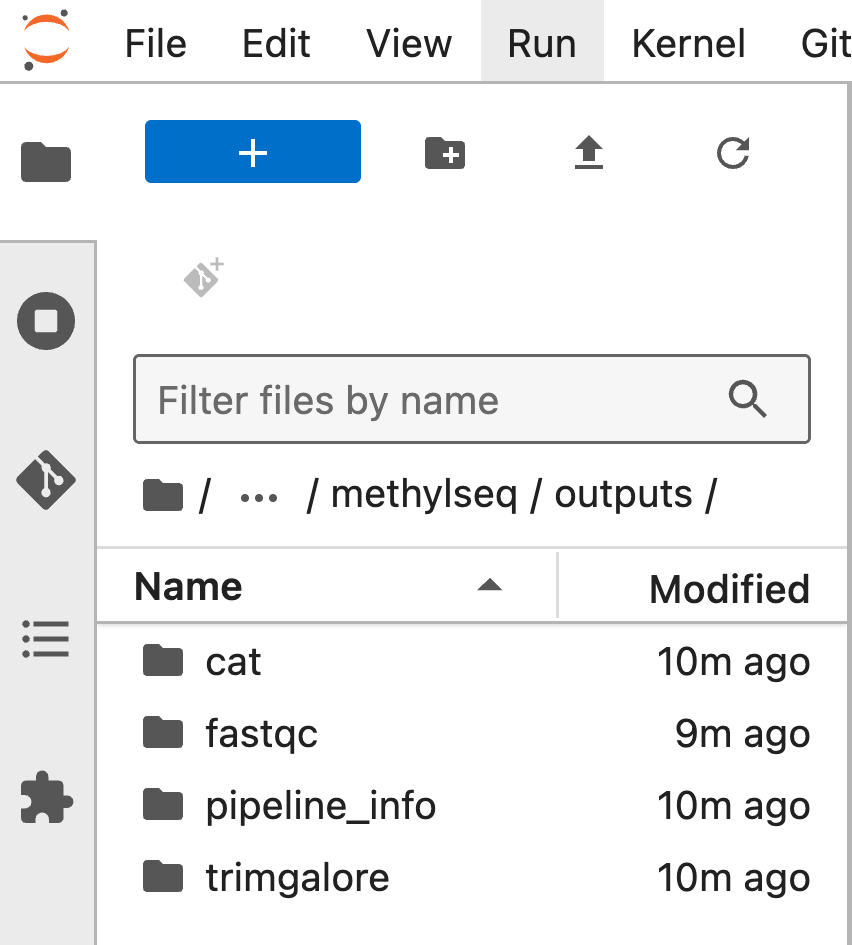Methylation Sequencing
You can find this application in the demos folder of your Jupyter notebook environment.
- samplesheet.csv
- methylseq_workflow.ipynb
Methylation sequencing (Methyl-Seq) is a key tool for studying DNA methylation, an essential epigenetic modification influencing gene expression and cellular function. The nf-core/methylseq pipeline simplifies the analysis of Methyl-Seq data, offering a robust and reproducible workflow. Running this pipeline on the Camber platform, powered by the Nextflow Engine, makes it easy to perform complex bioinformatics tasks with minimal effort, providing scalability and efficiency for researchers.
The first step is to import the nextflow package:
from camber import nextflowHere’s an example of how to setup configurations and execute a job:
command: The full Nextflow command to run the nf-core/methylseq pipeline.--input:"./samplesheet.csv": the relative path ofsamplesheet.csvfile to the current notebook. In case of using local fastq files, the locations insamplesheet.csvfile content are relative.--outdir:"./outputs": the location stores output data of the job.
node_size="MICRO": indicate node size to perform the job.num_nodes=4: indicate number of nodes to run workflow tasks in parallel when possible.
command = "nextflow run nf-core/methylseq \
--input ./samplesheet.csv \
--outdir ./outputs \
--genome GRCh37 \
-r 3.0.0"nf_methylseq_job = nextflow.create_job(
command=command,
node_size="MICRO",
num_nodes=4
)This step is to check job status:
nf_methylseq_job.statusTo monitor job exectution, you can show job logs in real-time by read_logs method:
nf_methylseq_job.read_logs()When the job is done, you can discover and download the results and logs of the job by two ways:
- Browser data directly in notebook environment:

- Go to the Stash UI:

This tutorial highlights how Camber simplifies running the nf-core/methylseq pipeline, enabling efficient execution and result retrieval, making it a great choice for Methyl-Seq analysis.
Note: Please note that the files and folders saved in the demos directory are temporary and will be reset after each JupyterHub session. We recommend changing the value of --outdir to a different location if you wish to store your data permanently.